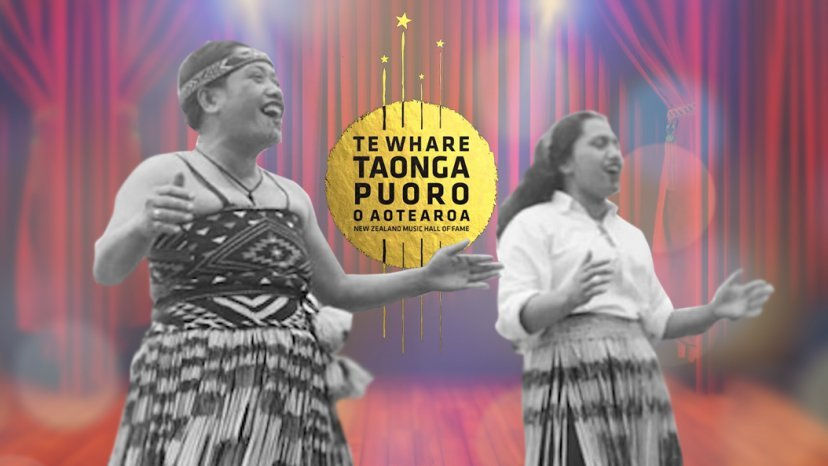A place we can express our fullest self
- Taylor-Rose Terekia & Callum Knight

- May 29, 2022
- 4 min read

Nau mai tauti mai ki tēnei whare kōrero o Te Pararē mō te tau 2022.
Tēnei māua ngā Kaiwāwāhi Matua Takirua e mihi kau ana ki a koutou katoa!
It is with extreme pleasure that we officially launch Te Pararē for 2022, fashionably late, but here nonetheless to open space for fruitful and courageous conversations in the months to come. While there will be opportunity to get to know us both over our social media, we want to use this editorial to crack right into the kōrero!
When planning this editorial, we were drawn to a tweet by none other than Te Pāti Māori co-leader, Rawiri Waititi. Earlier this month, he hit us with this statement:

Motivated, provoked, inspired, all of the kupu, we reflect:
Taylor-Rose:
There have been a million situations where I simply couldn’t communicate my thoughts, feelings and experiences and feel heard because the people around me didn’t understand te reo Māori. On a day-to-day basis, I have to let my English tongue take auto-pilot. But when I have the chance to speak in a space and with people (outside of home) who can understand me in te reo Māori, the whole world shifts. There are so many things that can only ever be understood and communicated in te reo Māori, and most important is the tikanga, kawa, and worldview it functions within.
It’s sometimes sad, lonely and frustrating to live in a society that demands you speak and live in the English language and the associated worldview. But reading these words Rawiri shares lights a fire within me. It demands that we hold-fast to the aspiration of te reo Māori me ōna tikanga, thriving amongst our people - for our people, and also for ourselves. It motivates us to create more spaces where te reo Māori is the norm.
When thinking about what Te Pararē is, I believe that it’s a means of communication between tauira Māori in the now. Some of us can communicate in te reo Māori, but most of us only have English. This is a platform for both. So that despite the language barriers put before us by means outside of our control, we can come together as Māori and simply share and be.
Callum:
For as long as I can remember, I have defined myself by my words. My thoughts are clearer on the page than anywhere else in the world. Over the past few years of studying, as I’ve made more of a conscious commitment to ‘be’ Māori – to embrace my whakapapa without feeling like an imposter for doing so – the pathway I’ve felt most comfortable exploring that nascent sense of identity has, naturally, been through writing as well.
So when I read comments like those of Matua Rawiri Waititi, I can’t help feeling a sense of sadness.
Partly it’s whakamā and mamae at not having my reo. But the greater part of me feels more hopeful and excited than sorrowful.
I write in te reo Pākehā because it is the language I was raised with. I write in te reo Pākehā because until a few years ago, I didn’t feel comfortable saying I was Māori – let alone attempting to claim the reo that is my birthright. And I write in te reo Pākehā because I read the words of Whiti Hereaka, Keri Hulme, Tina Makereti – and many, many others – and see the footsteps of those who have come before me. Each story, each glimmer of mātauranga I wasn’t brought up knowing is a taonga I hold fiercely close. When I read and listen to the kōrero of Māori working in te reo Pākehā, I don’t get the sense that this language is empty of culture or spirituality – although I do get the sense that there’s a whole world of knowing for me to gain.
And so...
For many of us, te reo Pākehā is the only reo we have. But these words do not make us less. Wherever we are on our learning journey, we can look to those who have come before us and know that we are not alone.
For some of us, we can proudly say te reo Māori is our mother tongue. With that comes a responsibility to be its biggest champions and protectors in a world that is still waking up to its true value.
In a colonised world, every word we write or speak – in our reo or theirs – is an act of defiance. Studying at institutions that are still fundamentally Pākehā, so often we have to stake our claim rather than simply be. Our hope, stepping into this shared role with Te Pararē, is that we can hold a space for tauira across the motu where – whether in te reo Māori or te reo Pākehā – we can express the fullest versions of ourselves.
E kore au e ngaro, he kākano i ruia mai i Rangiātea.
Mō ngā Kaiwāwāhi Matua Takirua:
Taylor-Rose Terekia
Te Aitanga a Māhaki, Ngāti Porou, Ngariki Kaipūtahi, Ngai Tahu
She/Her
Callum Knight
Te Hika o Pāpāuma
He/Him











Comments